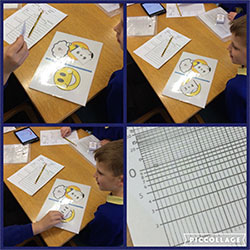Improving Pupils’ Basic Numeracy Skills with SAFMEDS 2017-2018

SAFMEDS-GwE Project
SAFMEDS-GwE (Say All Fast Minute Every Day Shuffled) is a project to improve pupils basic mathematics fluency skills using an evidence-based teaching strategy.
The project is a cluster-randomised controlled trial to evaluate the effect of a precision teaching intervention called SAFMEDS (Say All Fast Minute Every Day Shuffled) on the numeracy attainment of pupils in GwE primary schools. SAFMEDS is a teaching intervention that has already been used successfully to improve the numeracy skills of pupils in smaller scale studies in schools in North Wales.
What is SAFMEDS-Conwy
This project aims to improve the basic numeracy fluency skills of pupils from Year 2 to Year 3 identified as in need of intervention support via supplementary teaching to improve basic fluency skills. We now have research evidence that SAFMEDS is a very effective supplementary teaching methodology. The primary focus of this project was to identify a minimum 20 primary schools in the GwE region where a significant number of pupils are deemed to be struggling with prerequisite numeracy skills and/or require support and practice to improve their fluency across a range of mathematics skills in the revised programme of study. The project is particularly focused on improving the outcomes for eFSM pupils.
We know from research projects in North Wales that SAFMEDS can be delivered effectively in a variety of forms, for example intervention sessions delivered by teaching assistants to small groups, whole class intervention or peer-led sessions. This pilot randomised controlled trial (RCT) will evaluate evaluate the impact of additional ongoing support and data anlaysis on the learning outcomes they achieve.
Some of the research work in North Wales studies have been published in peer reviewed research journals and have focused not only on the outcomes of SAFMEDS, but also on the key factors that lead to it being successfully implemented across typical school settings in North Wales. This proposal is a collaboration between GwE and Bangor University as part of CIEREI (Collaborative Institute for Education Research, Evidence and Impact).
The principal aims of SAFMEDS-GwE are:
- Improve the basic maths fluency skills of pupils identified as requiring catch-up intervention and support
- To assist schools in the effective implementation of SAFMEDS
- Each school will receive initial training and support to deliver SAFMEDS to a target group of pupils. The project will also assist schools in the monitoring and evaluation of the intervention.
- Half of the participating schools will be randomized to receive additional regular support and advice from the research team to examine whether an enhanced external support model improves the outcomes for children. Although all pupils in the project will benefit fdrom SAFMEDS, we are interested to know the impact of the ongoing support on pupils’ outcomes.
- Bangor research officer will visit school to undertake the initial placement tests on the 10 pupils you have identified for the intervention.
What is SAFMEDS and how will it benefit pupils in my school?
SAFMEDS is an evidence-based teaching strategy developed by experts in the application of learning sciences to education. The intervention has been designed to enable pupils to improve their rate of learning and achieve fluency in the designated skill, in this case mathematics skills. Typically, pupils receive three 20 minute sessions per week.
SAFMEDS may assist schools in the following ways:
- To improve the mathematics attainment for pupils identified as not making age appropriate progress.
- To enable targeted pupils to access all areas of the curriculum through improvement in mathematics and numeracy skills
- To promote the use of evidence-based interventions to raise standards in mathematics and numeracy (cf. Sutton Trust and Welsh Government pupil deprivation grant priority).
- To provide a high quality, cost effective, individualised instruction.
How do we know that SAFMEDS is effective?
SAFMEDS has a growing evidence-base, with a number of controlled studies demonstrating positive outcomes. The School of Psychology at Bangor University has been piloting SAFMEDS with schools in North Wales over recent years, with encouraging findings indicating the programme helps children improve their basic mathematics skills. These studies also show that the retention of these skills is good.
Outcomes from several projects in North Wales have been published in peer reviewed journals.
Which pupils will benefit from SAFMEDS interventions?
SAFMEDS will help pupils of any age build fluency in prerequisite mathematics skills. The University has produced a large resource bank with SAFMEDS fluency materials to help pupils master each of the Strands and Elements in the 2014 Programme of Study for Mathematics from Year 1 to Year 7. Schools will have access to all these materials to use as appropriate.
Any pupil struggling with age-related mathematics skills would benefit from SAFMEDS intervention. This may also include pupils scoring below 100 standard score points on standardised mathematics and/or National Numeracy Tests. SAFMEDS does not replace classroom instruction, it helps pupils build mastery and fluency in core skills aimed at supporting the classroom teaching.
